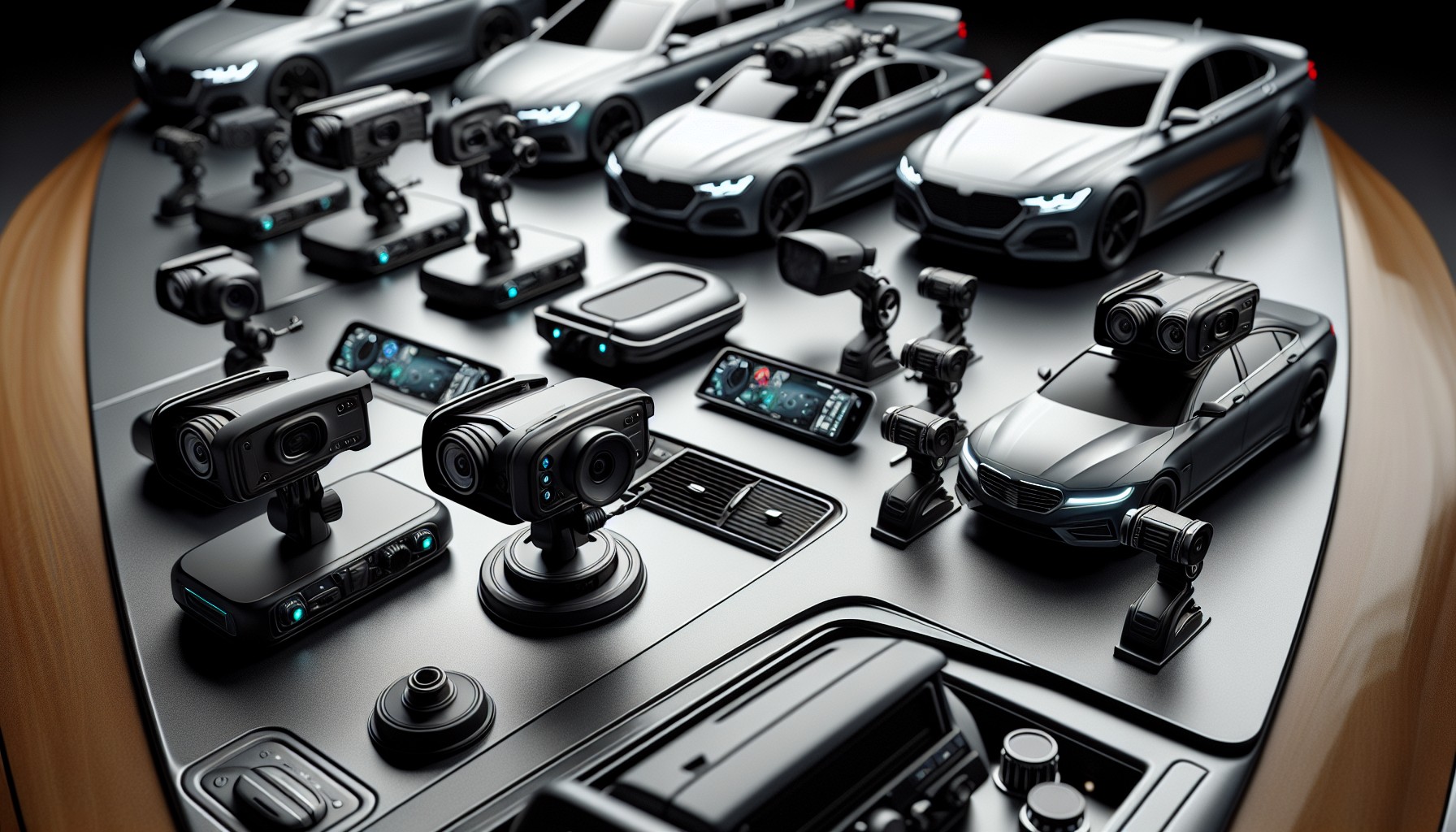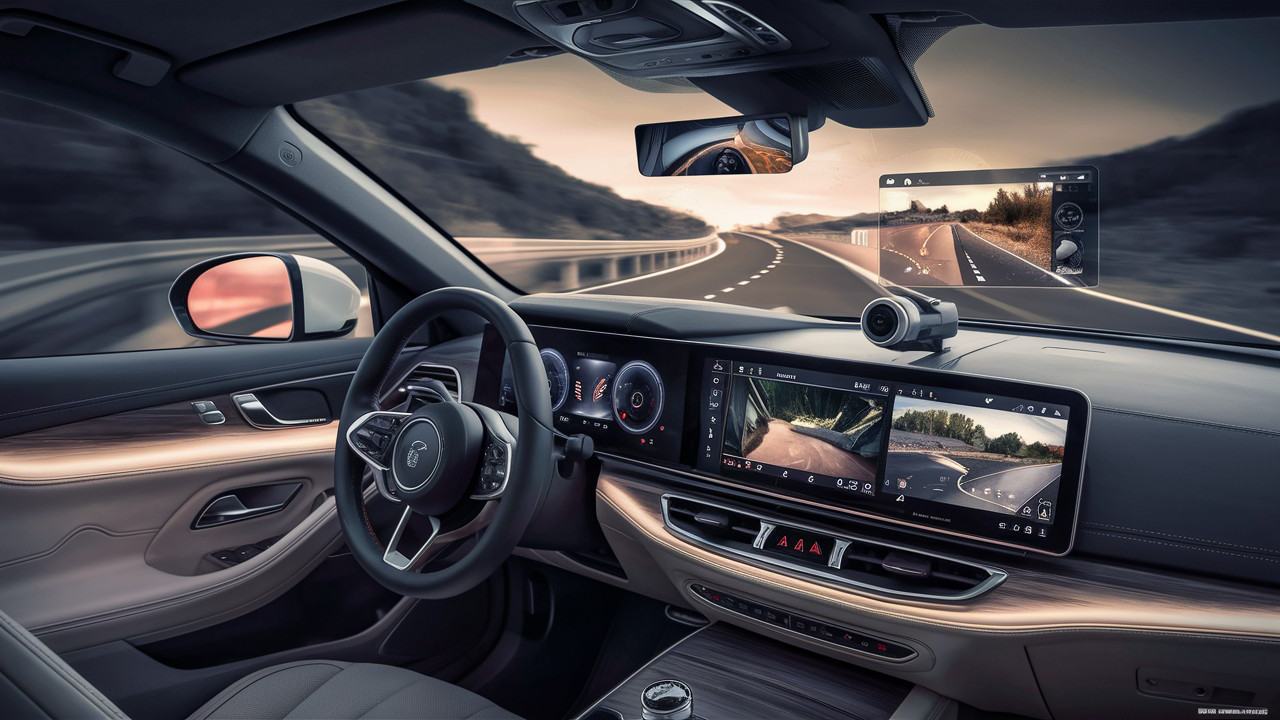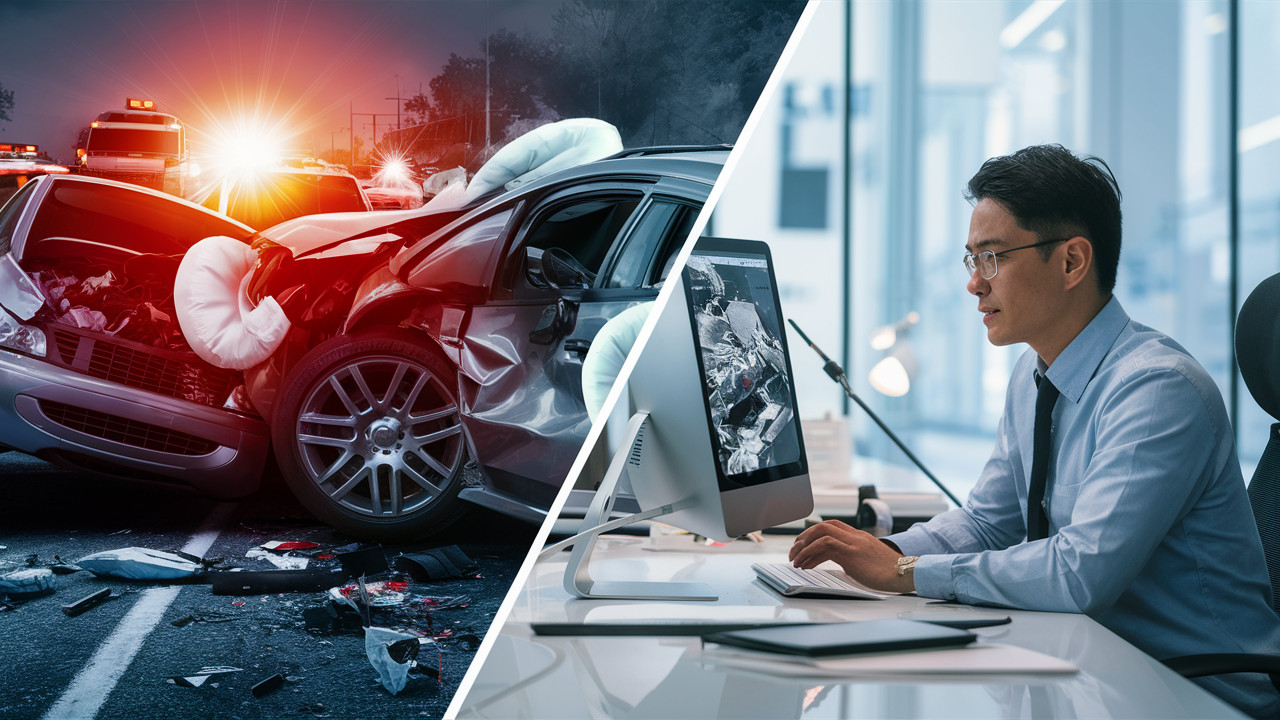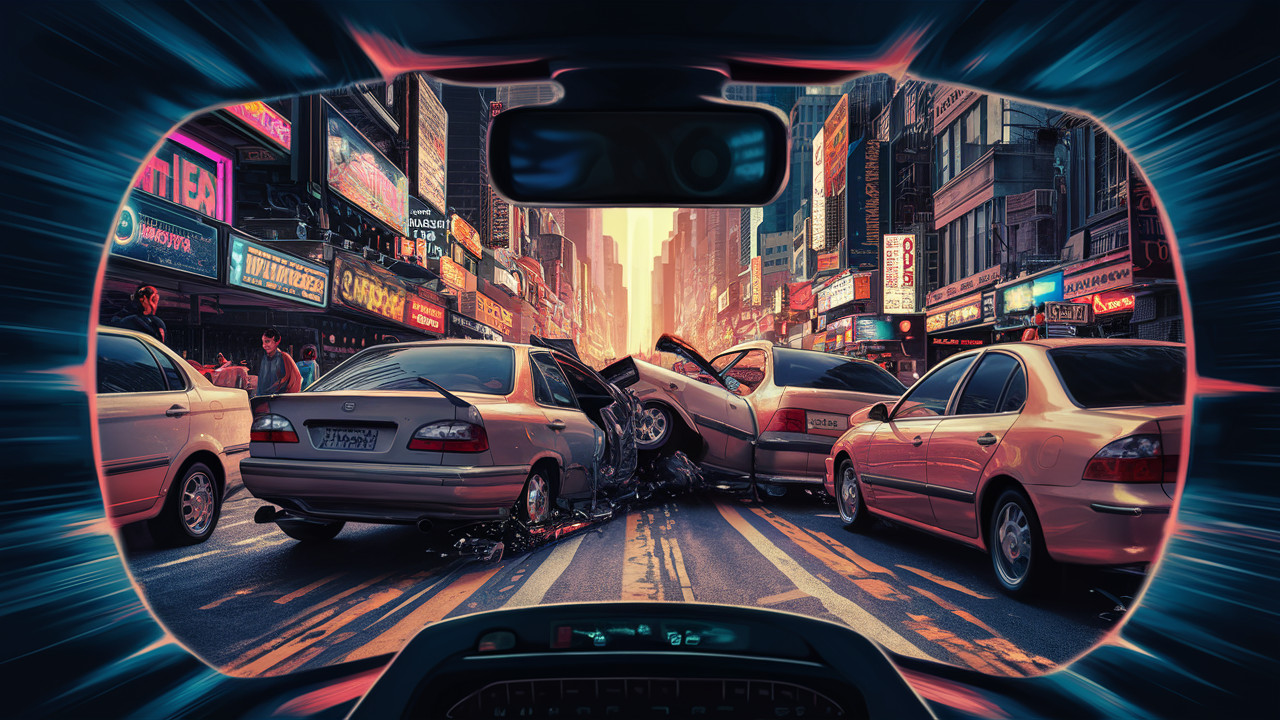
Revolutionizing Road Safety: Dashboard Cameras for Cars Unveiled
Understanding Dashboard Cameras
Dashboard cameras, or dash cams, have become a hot trend lately. They're those nifty little gadgets attached to your car's windshield that don't miss a beat, recording everything happening on the road ahead. When things go sideways, like in a car crash, this footage can be your knight in shining armor, offering legal backup and proof in heated accident disputes.
Impact of Dash Cams
More drivers are seeing the light and mounting dash cams in their rides. Not only can these cameras be the ace up your sleeve in accidents or unexpected police encounters, they also pack a punch in squabbles over who’s to blame and insurance screaming matches. That video evidence? It’s like having an eyewitness riding shotgun, stepping up road safety and accountability. With a dash cam, throwing the “not me” card gets trickier for anyone trying to pull a fast one.
Dash cams also take issue with any reckless speed demons on the road. Seeing that red light runner or the tailgater from nowhere? Caught on camera. They’re not just legal safety nets but keep other drivers in check—a real double whammy for road protection.
| Dash Cams: What's in it for you? | What's the deal? |
| Proof in a Pinch | Catches what went down before a fender bender. |
| Fraud Fighter | Throws a wrench in the plans of crash-for-cash crooks. |
| Incident Archivist | Keeps tabs on all the wild drivers out there. |
Legality and Evidence in Accidents
Dash cams are aboveboard across all states, but watch out for the fine print on audio recording and blocking views. And that sneaky footage? It can be your ace in the hole for nailing down blame in accident cases. But a word to the wise: invest in a top-shelf camera to make sure your evidence holds water in court.
Besides rolling tape on your joyrides, dash cams don't snooze on the job. They keep recording, though they cap out around 6 hours and start a rewind unless you save the good bits (Injury Lawyers link). Before you shell out for a new dashboard buddy, get to grips with how they work and what’s the legal lowdown on them.
Buying a dash cam isn't about just getting a window view on your daily drive. It's your personal safety blanket assuring you while you're out cruising.
Key Features of Dashboard Cameras
Dashboard cameras, or dash cams as most folks call them, pack a punch with nifty traits that amplify their usefulness. Getting a grip on these can steer folks toward picking the right one to match their rides and needs perfectly.
Continuous Recording Capability
Think of dash cams as your very own little film crew, rolling credits from start to stop. They don't miss a beat, capturing life as it happens around your wheels. You've usually got a good six-hour window of footage before the cam sends older clips packing, unless you hit save on those wild scenes worth keeping around (Injury Lawyers).
| Feature | Description |
| Continuous Recording | Rolls while the car's in action |
| Overwrite Function | Kicks old clips out unless saved |
| Standby Mode | Jumps into action if it senses tampering or bumps while you're parked. |
Storage Capacity and Footage Management
When it comes to holding onto all that juicy footage, dash cams rely on trusty Micro SD cards. These cards vary in size, from a snack-sized 8GB all the way up to a beefy 128GB or more. Bigger storage lets you hold onto those epic car scenes a bit longer before they get the boot. To keep all those crucial tidbits safe, regular clip checks and save sessions are the game plan. Knowing how much footage your cam can stash will ensure it keeps up with your daily grind.
| Storage Capacity | Approximate Recording Time |
| 8GB | Snack-sized 20 - 30 minutes |
| 16GB | Steady 40 - 60 minutes |
| 32GB | Meaty 1 - 2 hours |
| 64GB | Satisfying 2 - 4 hours |
| 128GB | Plenty 4 - 6 hours or more |
Extras like cache recording mean your cam is ready to backtrack a few seconds, offering a kind of magic rewind for those near misses (US News). Picking the right storage size and knowing how to manage those clips ensures you squeeze every drop of value out of your dash cam.
For those eyeing the fancy stuff, locks into models with GPS tracking or a dual setup for a kind of all-seeing-eye experience front and rear dash cam.
Choosing the Right Dashboard Camera
Selecting the right dash cam for your ride is like picking the best co-pilot for your road adventures. You want one that'll capture all the action while keeping you safe and sound. Let's dig into what really matters when shopping for these little gadgets, like cost and cool features. We’ve also got some solid thinking to do over choosing between the pop-in aftermarket options and ones built right into your wheels.
Pricing and Features
Dash cams can be as cheap as your morning coffee or cost enough to make you rethink your lunch plans. Here’s what you’re getting for your bucks:
| Price | Features You Get |
| $30 - $100 | Basic stuff, single video stream, meh resolution |
| $100 - $400 | Decent recording, clearer images, can see more of the road, basic night vision. |
| $400 - $500+ | Fancy stuff—multi channels, night vision that actually works, Wi-Fi, GPS, keeps an eye on your car when you’re not around. |
You can snag an entry-level, single-channel dashcam for about $50, but if you want the Rolls-Royce of dashcams with multi-channel magic, night vision, and parking superpowers, expect to drop over $500. If asking a pro to set it up for you, add about $150 to the tab (Kelley Blue Book). When shopping, decide what’s a must-have and what’s just icing on the road-capturing cake. The top-tier cams boast sharper videos, bright captures even when it’s dark out, and cool add-ons like sensors that remember any bumps or scrapes.
Aftermarket vs. Built-in Options
Deciding between a post-purchase dashcam and one baked into your car’s kibbles-and-bits isn’t all black and white. Each has its flavor of perks and quirks.
- Aftermarket Dash Cams
- Pros:
- A smorgasbord of prices and features to pick from.
- Mix-and-match for your style.
- Flexibility to switch out as new snazzy tech rolls onto the scene.
- Cons:
- Might need a pro to install, which means more dollars.
- Sometimes feels less like a part of your car’s original DNA.
- Built-in Dashboard Cameras
- Pros:
- Made to blend right in with your ride.
- No extra cost if you’re in a vehicle packed with luxuries.
- Plays nice with other car systems.
- Cons:
- Usually doesn’t offer all the nifty extras like aftermarket setups.
- A pain to upgrade or swap if you want the latest and greatest.
Think about what fits your wallet, what goodies you want your camera to have, and whether you're cool with a camera that stands alone or one that’s snug as a bug in your car’s built-in tech. For more deets on dash cams, swing by our guides on car dash cams and GPS tracking dash cams.
Benefits of Dashboard Cameras
Dashboard cameras, or dash cams for short, pack a lot of punch when it comes to keeping folks covered with their insurance and helping sort things out when accidents or disagreements pop up.
Insurance Implications
Getting a dash cam could mean cutting down on car insurance costs. While you might not see a huge drop in your rates, some insurers might toss a discount your way because they know dash cams help sort out claims and kick fraud to the curb (Traxxis GPS Solutions). Think of a dash cam as a little extra insurance policy riding shotgun. It’s there to back you up if you're wrongly blamed for a crash, which can help avoid those pesky premium hikes.
Potential Insurance Benefits
| Benefit | What's in It for You |
| Discounts | Snag some savings on your premiums. |
| Fraud Prevention | Prove your case and stop sneaky fraudsters. |
| Claim Resolutions | Clear up claims fast with solid proof. |
Evidence in Disputes and Accidents
Dash cams are like having an extra set of eyes that don't blink. They cut through the he-said-she-said tangle that often follows accidents, when drivers disagree, witnesses see things differently, or the police report leaves room for doubt. The footage they capture lays down a clear, unbiased account of what went down (Law Brothers). This can be a real game-changer in legal scuffles where who’s at fault is up for debate, nailing the truth down.
Advantages of Dash Cam Evidence
| Evidence Perk | Why It Rocks |
| Clarity | Shows exactly what happened—no fuss, no muss. |
| Accountability | Makes sure everyone’s actions are on record. |
| Peace of Mind | Lets drivers breathe easy with video proof in their corner. |
Using dashboard cameras means drivers can ride easier knowing they've got a high-tech co-pilot looking out for them. If you're curious about the different kinds of dash cams, check out our articles on car dash cams and front and rear dash cams.
Installation and Usage
Dashboard cams, or dash cams as they're often called, are the unsung heroes of the road, providing critical video proof when car accidents happen. Nailing the setup and getting the most out of these gizmos is crucial to make sure they do what they're supposed to do.
Power Source and Activation
Dash cams get their juice from your car's electric system. They spring to life as soon as you fire up the engine—no muss, no fuss. Some models even hang around like overzealous security guards, keeping watch while the car's in park. When set just right, they keep rolling, ready to capture any funny business if the car gets bumped or messed with.
Here’s a quick rundown of how these cams stay powered:
| Power Source | Description |
| Vehicle Battery | Hooks up to the car's system, kicking on with the engine. |
| Built-in Battery | Lets you catch a few minutes of video even after the car's off. |
| External Battery Pack | Handy for keeping the cam going when parked for long stretches. |
Automatic Recording Features
Dash cams are built to roll continuously while you're on the move, capturing the nitty-gritty details if things go sideways out there (check out Vantrue's guide). They loop their recordings so when they run out of space, they write over the old stuff—unless you've set it aside as keeper footage.
Here's what makes 'em tick:
- Loop Recording: Keeps recording over the oldest stuff once the storage's full, unless you hit save on something you need.
- G-Sensor Activation: Picks up on sudden car jolts and locks in the video so it doesn't get taped over.
- Parking Mode: Stays on high alert in park mode, ready to catch those sneaky hit-and-runs or vandals in action (More on parking mode here).
When you're in the market for a dash cam, these bells and whistles are a must for watching your back—all the time. To explore different dash cams, spend some time with our car dash cams lineup.
Commercial Vehicle Applications
Dashboard cameras are popping up as must-haves for commercial vehicles, bringing a truckload of perks for fleet management and keeping fraudsters at bay.
Fleet Management Benefits
Slapping some dashboard cameras in those big rigs can give fleet managers a peek into how drivers are really behaving behind the wheel. It's like having eyes in the back of your head! These gadgets lay it all out, showing where a driver might need a little coaching. This isn't just about keeping drivers on the straight and narrow—it's about slashing costs tied to mistakes or mishaps on the road. Companies with dash cams can see fewer hiccups and may even cut down what they shell out on operational costs.
| Benefit | Description |
| Better Driver Training | Videos spotlight performance and help nail down where training’s needed. |
| Safer Roads | Nonstop monitoring nudges drivers toward safer habits. |
| Save Some Bucks | Fewer wrecks mean saving on insurance and repairing busted vehicles. |
Some insurance folks, like Teletrac Navman, get just how game-changing these cameras are and might even shave off a bit from the insurance costs if you're using them.
Protection Against Fraudulent Claims
Dash cams are pure gold when it comes to blocking fraudulent claims and avoiding those courtroom dramas. The videos from these cameras act as your trusty sidekick, recording it all when things go down, making clearing up disputes way faster than wading through eyewitness accounts. When hauling goods, dealing with fibs and false charges can mean big bucks, so having video backup is crucial.
| Protection Aspect | Explanation |
| Clear-cut Evidence | Footage offers undeniable proof and boosts transparency. |
| Quick Claims | Having solid proof speeds up all that back-and-forth with insurers. |
| Legal Backup | Unwavering records can fend off legal wrangling and bogus claims. |
With dash cams keeping watch, operators can breathe easy, knowing they've got the goods to bust false allegations (Teletrac Navman).
Dashboard cameras are becoming the go-to for businesses looking to smooth out fleet operations and shield themselves from risk. They don't just make logistics a breeze, but also act as a big old safety net for any commercial driver worth their salt. Curious about top camera picks? Check out our rundown on best dashboard cameras.
State-Specific Regulations
When buying a dash cam for your car, you gotta know the rules of where you live since they change from state to state in the good ol' USA. Keeping yourself in line with these rules means you're using your dash cam safely and legally.
Legal Guidelines Across States
Dash cams are good to go in all states, but there's a catch on exactly how and where you can stick 'em in your ride. Here's the lowdown on a few places:
| State | Guidelines |
| Alabama | Mount that cam on your dashboard because sticking it to the windshield can get you in trouble. |
| California | Throw it on the designated areas of your windshield, just make sure it's not blocking your line of sight. |
| Texas | Safer to place your cam on the dashboard to steer clear of windshield interference problems. |
| New York | Dash cams are handy for traffic disagreements. It’s best to keep them on the dashboard. |
For more deets, swing by Facit.ai.
Placement and Audio Recording Laws
Where you put your dash cam matters, big time. It should never block your view. Alabama and Texas have strong opinions on positioning. Make sure you're following their lead!
When it comes to recording sound, it’s a whole different ball game. Some states ask for everyone’s nod to record conversations legally. Better check what's up in your neck of the woods to keep things above board.
| State | Audio Recording Law |
| California | You need at least one person in the convo to say it's cool. |
| Texas | Feel free to record those chats without getting the go-ahead from everyone. |
| New York | Consent is usually needed unless one party's on board with the taping. |
Grasping these rules means you can fully enjoy your dash cam without stepping out of bounds. Curious about what makes a dash cam top-notch? Take a look at our piece about the best dashboard cameras. Interested in even more coverage? Check out front and rear dash cams.
Dash Cam Selection Criteria
When picking out dash cams for your car, it's all about the right combo of features like resolution, picture clarity, field of view, and frame rates. These elements make all the difference in nailing those crucial moments on tape.
Resolution and Picture Clarity
You want sharp footage? Start with the resolution. At minimum, grab a cam with 1080p resolution—it’s perfect for catching those tiny, but important details like license plates and road signs. Got a little extra cash? Go for the 4K option. It takes clarity up a notch, giving you the clearest snapshots you can get, making your dash cam way more reliable when it matters.
| Resolution | Best For |
| 720p | Simple recordings |
| 1080p | Clear everyday shots |
| 4K | Extra crisp details |
Top-of-the-line cams toss in extra goodies, like super high video quality and better shots in low light. Features like night vision or HDR (High Dynamic Range) make sure that even in the dark, your footage is crystal clear.
Field of View and Frame Rates
The field of view (FOV) decides just how much your cam can see at once. A wide FOV packs more of the action in each recording, which is handy for catching what's going on around your ride. But beware—a broader FOV might mean a dip in photo quality since pixels get stretched thin.
| FOV Type | Capture Range |
| Narrow | 70-90 degrees |
| Standard | 100-130 degrees |
| Wide | 130-170 degrees |
Frame rates are key players in your video’s quality game. Most dash cams stick with 30 frames per second (fps), but some fancier models bump it to 60fps, serving up a smoother video feast. But just a heads-up—bigger frame rates can fill up your storage quickly. They're perfect for snapping fast-moving stuff in action, making it a cinch to look back at any mishaps.
Before dropping cash, check out how adjustable they are, including setups for front and rear dash cam combos, and stack them up against the best dashboard cameras out there based on bang-for-your-buck and performance.
Advanced Features and Technology
As tech keeps growing, car dash cams now pack some pretty fancy extras to boost how they work and what they can do. Knowing these features helps shoppers make smart choices.
GPS Tracking and Night Vision
GPS tracking is a biggie for dash cams. It lets you track where your car's been, its speed, and even the routes taken. Super handy if you get into a scrape, as it shows exactly how things went down. Many cameras have built-in GPS that logs this stuff without you lifting a finger.
Night vision’s another must-have. It makes sure the cam captures good quality footage even when it’s dark out. Go for at least 1080p HD so it grabs those all-important details like license plates or signs at night. Top-notch models might even offer stuff like HDR, making sure the video’s clear whether it’s twilight or pitch black.
| Feature | Description |
| GPS Tracking | Logs speed, spots, and routes |
| Night Vision | Gets clear shots in the dark |
| 1080p HD | Best for snagging the details |
| HDR | Enhances vids in tricky light |
If keeping tabs on your car's location is your jam, going for a GPS tracking dash cam is a smart move.
Impact Detection and Parking Mode
Impact detection gets busy whenever something hits your ride, snapping video when it happens. This means you always have the footage if you’re involved in a fender bender. Some high-end cams even give you buffered recording, capturing just before and after the hit to make sure no crucial moment slips by (US News).
Parking mode kicks things up a notch too. Using motion sensors, it wakes up the camera if someone’s lurking near your parked car. Lots of models marry this with GPS to keep tabs on speed and spot, offering another layer of evidence if there's trouble.
| Feature | Description |
| Impact Detection | Starts recording during crashes |
| Buffered Recording | Captures just before and after a collision |
| Parking Mode | Tapes any action around parked vehicles |
| GPS Sensors | Logs position and motion when parked |
For those keen on having eyes on their car even when it’s parked, choosing models with high-grade impact detection and parking mode can be a big win. These gizmos help ward off false claims or damage.
Getting dash cams with these advanced doodads can seriously up your safety game and give drivers some serious peace of mind. If you want to explore top choices, swing by our list of best dashboard cameras.



